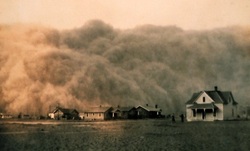
hi bloggers.....
Our college in the annual inter college sports meet, which is scheduled from February 3rd to 5th, 2011.
Interested students can contact the people listed below or their respective departments latest by February 1st, 2011 as to form a team and send a list to physical education department before February 2nd, 2011.
1. Mr. Kapil Keswani (EC) 99933 10345
2. Mr. Mukesh Tomar (ME) 99261 38529
3. Mr. Anubhav Saxena (CS) 96918 36306
4. Mr. Vineet Kushwah (IT) 97547 28428

hi bloggers..
Here's a good news for you now you can get your own article poste on the blog. A lot of times people asked me how to get their article posted on the blog well here's what you have to do in order to get the article posted, just simply go to the article post page and fill the necessary details and get your article posted.

hi bloggers....
If you think that Facebook eats up most of your time, then it's only going to get worse, suggests a new study.
Researchers at City University of Hong Kong have suggested that users become more active in online social networks as they grow bigger, reports New Scientist.
The researchers considered behaviour in two online networks: the Chinese blogging site Sina and a peer-to-peer file-sharing system called Tianwang.
By comparing the growth of these networks with user activity, they managed to settle a long-standing argument.
There are two competing schools of thought when it comes to the growth of online social networks. One suggests that networks grow in a linear fashion: in other words, the activity of each user doesn't change much and so network activity grows in proportion with the number of users.
However, the second theory suggests that network growth is non-linear: as a network grows in size, users also use it more, causing total network activity to increase far more quickly than the linear model would predict.
The study results support the non-linear hypothesis, as the researchers observed that both blogging and peer-to-peer file-sharing sites see users becoming far more active on the networks the larger they get.
In the case of the peer-to-peer network, the team found that if the number of users doubled, their activity rose by a factor of 3.16. They also discovered that the bigger the inequality in activity between users, the quicker the network would grow.
"It makes sense that the total activity in a social system would be non-linear, because in a social system, the more people there are, the more things there are to do," said Mike Thelwall, of the University of Wolverhampton, UK.
"This would probably transfer to Facebook and Twitter, too. You might start to rely on Facebook or Twitter if a high proportion of your friends were on them," said Thelwall.
The team has also found that the increased activity follows a pattern known as a time-invariant power law-one of the upshots of which is that all users tend to become more active in the network. So there's no point deluding yourself: Facebook definitely is sucking up more of your time than ever before.

hi bloggers.....
A newer version of Google can now solve the math puzzle Sudoku no matter how difficult it is.
A newly updated mobile phone application, called Google Goggles, uses a phone’s camera to capture a picture of any Sudoku puzzle and then sends it back to Google.
The servers at Google compute the answer and send back the image to the user.
Phil McNeill, the Daily Telegraph’s puzzles editor said the move was “a sad day” for puzzle fans.
“When you finally solve a real mind-bender, it brings a rush of achievement. I hope Google's new tool won't diminish that feeling,” the Telegraph quoted him as saying.
The application’s main function, however, is for price comparison information and general web searching.
Goggles is available on the iPhone and all Google Android phones.

hi bloggers.....
Experts have suggested that NASA must touch on the topic of space sex.
According to them, there haven't been any studies on whether a child be conceived in zero-G or how sex would even work in space.
Dr Rhawn Joseph from the Brain Research Laboratory in California discusses everything from the social conditions that would push astronauts to have sex to the possibility of the first child being born on another planet.
"Human beings are sexual. They think about it a lot. So if you're on a trip to Mars, it's going to be dark out, you'll be in a long period of isolation, and there's not going to be a lot to do," Fox News quoted him as saying.
"There's a definite possibility that it could happen."
Joseph added that on the long space journeys that NASA takes, it would be impossible to expect astronauts not to form emotional ties.
"The Antarctic is comparable to space: It's extremely cold down there and you spend a lot of time indoors. So NASA and lot of organisations think that's a great analog to what it'll be like on Mars," Joseph said.
"And we see that researchers will go down there for extended periods of time in these extremely hostile conditions, and women will get pregnant. It's just part of normal behaviour," he added.
"So if you put an infant on Mars, they would adapt to varying degrees of the new environment. And after several generations, you'd have a new species," he said.
NASA does not take a position on sex in space. According to the "Astronaut Code of Professional Responsibility," astronauts are expected to adhere to "a constant commitment to honorable behavior," but NASA won't go much further than that.
Michael Finneran, a spokesman for NASA Langley Research Center, said, "Since it's not a NASA publication, and NASA is not currently engaged in any initiatives to colonise Mars, and NASA's not conducting any research on sex or reproduction in space or on Mars, we are unable to provide a comment on the matter."
"Send husbands and wives into space to have sex and do studies on it. It's got to be done if the long range goal is to go to other planets. Science marches on," Joseph concluded.
The article appears in The Journal of Cosmology.

hi bloggers....
A new study by US scientists has revealed that the amount of dust in the Earth's atmosphere has doubled over the last century.
And researchers believe that the increase could be a contributing factor to climate and ecology changes around the world.
To measure fluctuations in desert dust over the last century, lead scientist Natalie Mahowald and colleagues collected existing data from ice cores, lake sediment and coral, each of which contains information about past concentrations of desert dust in the region.
They then linked each sample with its likely source region and calculated the rate of dust deposition over time.
Applying components of a computer modelling system known as the Community Climate System Model, the researchers reconstructed the influence of desert dust on temperature, precipitation, ocean iron deposition and terrestrial carbon uptake over time.
They found that regional changes in temperature and precipitation caused a global reduction in terrestrial carbon uptake of six parts per million (ppm) over the 20th century.
The model also showed that dust deposited in oceans increased carbon uptake from the atmosphere by 6%, or 4ppm, over the same time period.
While the majority of research related to aerosol impacts on climate is focused on anthropogenic aerosols - those directly emitted by humans through combustion - Mahowald said that the study highlights the important role of natural aerosols as well.
"Now we finally have some information on how the desert dust is fluctuating. This has a really big impact for the understanding of climate sensitivity," the Daily Mail quoted her as telling Science Daily.

Hi bloggers.....
IPSCTM - Official blog wishes you a very happy and prosperous new year.
keep blogging :)









 RSS Feed
RSS Feed